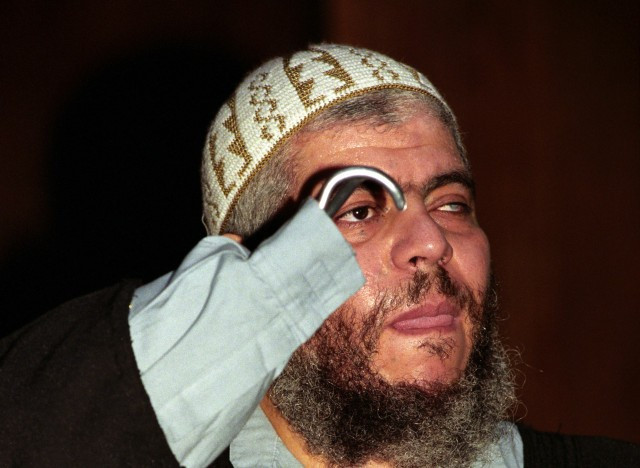Queen Grilled Government on why Abu Hamza Wasn't Behind Bars [VIDEO]

Queen Elizabeth broke with protocol to quiz the government on why radical cleric Abu Hamza was not in prison, at the height of his incendiary preaching campaign in north London.
The Queen has revealed to BBC correspondent Frank Gardner that she voiced concerns to the then-Home Secretary about the failure of the authorities to arrest Hamza for preaching hate, before his arrest in 2004.
The BBC reports that the Queen "was upset that her country and its subjects were being denigrated by this man."
Gardner added that, by intervening in this way, the Queen was not lobbying in breach of the constitution, but "merely voicing the views that many have."
The Queen was convinced that Hamza must have broken UK laws with his speeches, which preached the destruction of democracy and wanted a Muslim empire to dominate the world from London.
Long struggle
Hamza sprang to the attention of British authorities for his preaching at Finsbury Park mosque in the early 1990s. The mosque eventually dismissed Hamza in February 2003, and he was arrested under the UK Terrorism Act in August 2004.
Hamza was subsequently convicted of soliciting murder and inciting racial hatred in 2006, and jailed for seven years.
His long fight to stay in the UK appears nearly over, when European Human Rights judges rejected his appeal against extradition to the US.
Hamza's legal team claimed his human rights would be breached in America if he was detained in solitary confinement at a so-called 'supermax' prison.
The US authorities had pressed for Hamza's extradition on 11 charges. The maximum sentence for a conviction could be life behind bars for Hamza.
It is alleged he planned a terror training camp in Oregon and helped mastermind the kidnapping of 16 tourists in the Yemen in 1998.
Also facing deportation alongside Hamza are Babar Ahmad and Syed Talha Ahsan, who allegedly ran an extremist website. The pair are also accused of providing support to terrorists and of conspiracy to kill, kidnap, maim or cause injury.
With the European court's rejection of their appeal, Hamza, Ahmad and Ahsan look to have exhausted all avenues to remain in UK.
But a late attempt to keep them in the UK by mounting a private prosecution was mooted,although experts suggest such a measure is unlikely to succeed.
Click here for a compilation for Hamza's most outrageous slurs on western society.
© Copyright IBTimes 2025. All rights reserved.






















